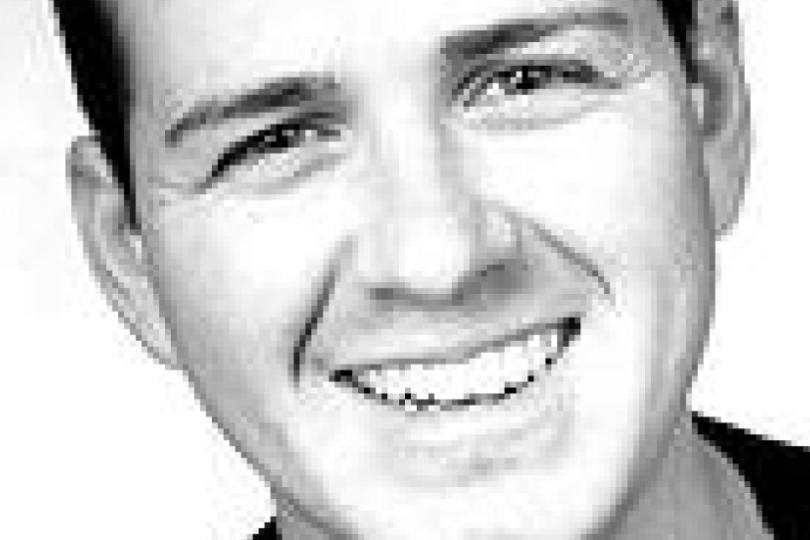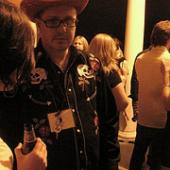I’ve been revising my theater resumes -- primarily my playwrighting resume. At this moment it’s an inventory of every single play I have ever had produced, and everything I have ever been hired to write, whether produced or not, and it struck me that this was next to useless. If I’m submitting a script, a producer is not going to care that I had a production at a theater company they have never heard of. They want the highlights -- they want to see what’s been done at companies they recognize and what reviews have come from critics they know. There are a million little companies in the United States -- heck, I even have my own company. A producer who sees your resume has no way of knowing if these companies are respectable, or competent, or even if they actually exist. Everything but what they recognize is just noise. It’s padding.
This got me thinking about resume padding in general. It’s a very American habit. I don’t know how well it flies in the workplace, but, then, I suspect some of it is allowable. If you’ve done office work, as an example, a lot of those skills will transfer over to another office job, even if you don’t know their phone system. If you’ve used one web content management system, you’ve pretty much used them all.
Your performing arts resume
Unfortunately, this habit sometimes transfers over to the performing arts, where it doesn’t work quite as well. I could, for instance, put “horseback riding” down as a skill on my acting resume. I rode a horse for several years when I was younger, and took riding lessons. But I haven’t been on the back of a horse in almost three decades. I was a ballroom dance instructor for a year in my early 20s, and can still do a competent cha-cha, but, the truth is, I’m too rusty to really claim that as a skill. And because I have written for one style of performance -- full-length stage plays -- does not mean I can comfortably claim to write anything else. I’ve never written a radio drama, and, although it might be tempting to claim I have the skills required to do so, it’s a different skill set than what I have used, and I’d be playing a lot of catch-up if I got hired to do so.
And the reason this can be a bigger issue in performing arts is because when somebody looks at your resume, they’ll generally looking for what you can do the very moment they cast or hire you. If I were to say I could juggle -- and I can, sort of -- and I got cast as a juggler, the limitations of my juggling skills would soon become obvious. And then I would have to take a lot of time to get myself up to speed, or I would have to be recast, all of which is a waste of time on the part of the producer.
Not knowing what you don’t know
Now, while I know some people are actively told “just write down anything, you’ll learn it when you need it” -- terrible advice, by the way, and something that will likely bite you on the ass down the road -- I think sometimes people in the arts are especially susceptible to something called the Dunning-Kruger Effect. Put simply, it’s a phenomenon where the less competent you are at something, the more competent you are likely to think you are. In other words, if you know little enough, you don’t know how much you don’t know. In the meanwhile, the more somebody knows about something, the less competent they are likely to think they are. They know enough to know how little they know.
The performing arts demands a lot of skills, and it is possible to get by with a bare level of competence in many of them. I’ve worked lighting, sound, stage management, and box office, and I know next to nothing about any of these things. But I did them well enough for what the show needed at the time, and it would be tempting to think that I could do them again. It’s the sort of thing I might consider putting on a resume. There’s real risk in this, however, because if somebody is actually looking for a stage manager, they are likely to be looking for somebody with skills beyond what I possess. And what are those skills that I am missing? I don’t know. I really don’t. But I bet an experienced stage manager could tell me.
It’s something worth thinking about when preparing a resume, or auditioning for a role. In a lot of ways, the most valuable thing somebody can know is what they don’t know, and the most dangerous thing they can do is assume they know more than they do. You don’t want to get cast for something, or hired for something, and discover, along with everybody else, that you really don’t know what you’re doing. That sort of thing can follow somebody for a long time in the performing arts. You’re better off simply putting the things on your resume that you absolutely can do when called on to do it, and you need to know precisely what those things are.
Are you uncertain? If you’re thinking of putting, say, knife throwing down on your resume, see if you can’t contact somebody who actually has a reputation as a skilled knife thrower. Tell them what you can do, and ask them what they think you would need to do. You’ll find out awfully quickly whether this is something you should be claiming as a skill or not. Your performing arts resume should be scrupulously honest about what skills you actually possess -- not the skills you think you possess, or think you could learn really quickly if called upon to do it. The performing arts are no place for padding.
Max Bunny Sparber
Max "Bunny" Sparber was the guest editor of MinnesotaPlaylist from December 2010 through February 2011, as well as being a longtime arts critic and playwright. His dramatic writing can be read at
http://www.maxsparberplays.com/.





